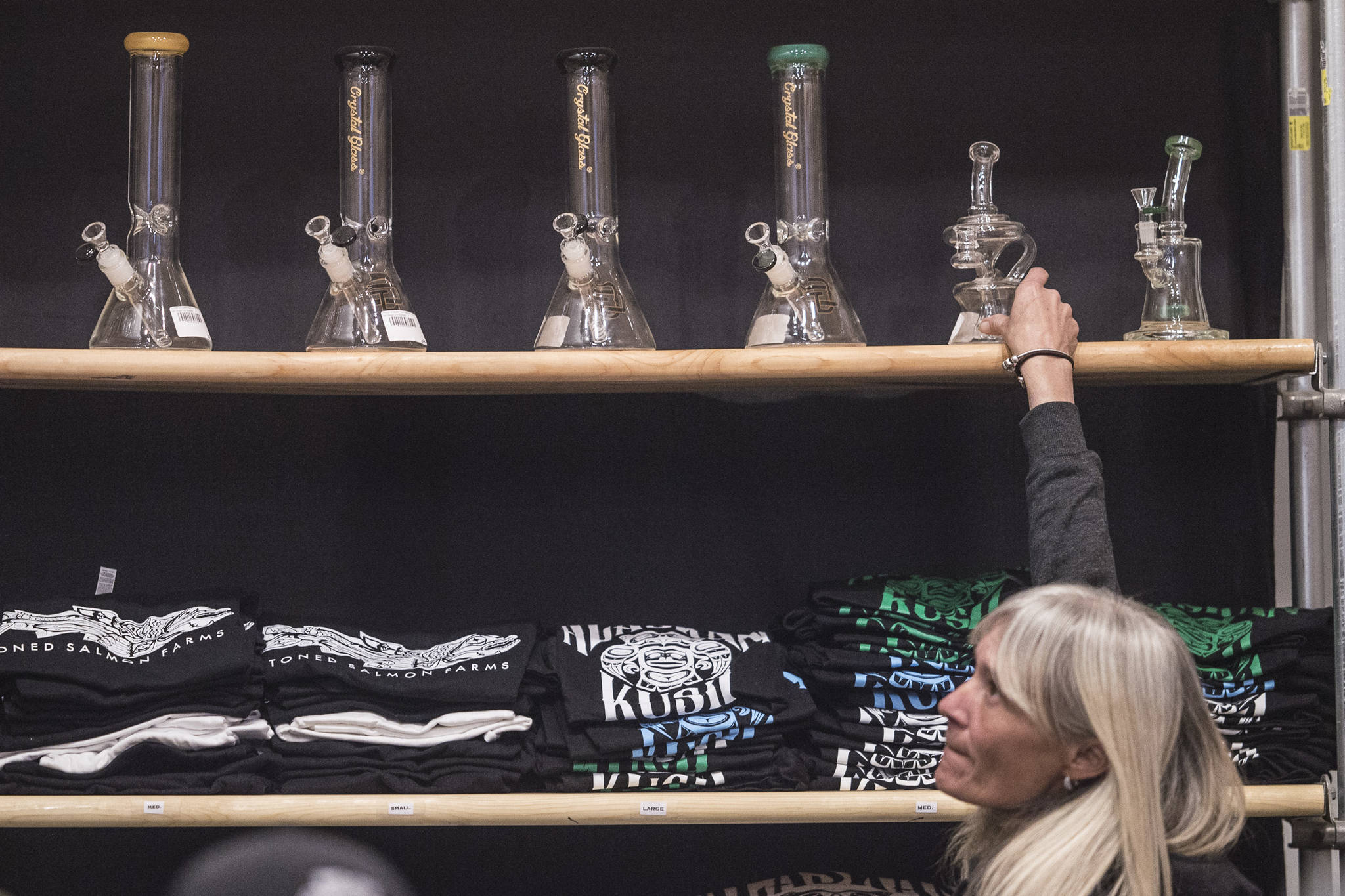The City and Borough of Juneau Assembly is considering allowing marijuana to be used in marijuana stores. This so-called “onsite consumption” seems contrary to the intent of the voter initiative decriminalizing marijuana, and more importantly, it’s just a bad idea for Juneau tourism.
Nearly half of Alaska voters didn’t want marijuana legal at all. And even those who voted for the marijuana ballot measure probably didn’t think that a “yes” vote would mean a slew of marijuana bars in downtown Juneau, catering to tourists.
Deputy Mayor Maria Gladziszewski was quoted in the Empire saying, “I want to give people who come here on ships a legal place to do what’s legal.” But this ignores the fact that marijuana presents risks for tourists, especially cruise ship and airline passengers.
[Marijuana retailers would like to offer smoking space]
In fact, marijuana sellers are required to post a warning (sign size and print size specified), telling customers that it’s a violation of federal law to carry or transport marijuana “on Alaska waterways, including cruise ships, or by air carrier” (3 Alaska Administrative Code 306.365(a)(2)).
Tourists may intentionally or unintentionally take marijuana with them and get on a boat for a whale watching tour, a trip to Tracy Arm Fjord or a helicopter or floatplane tour, all of which might be fun, but illegal under federal law.
There’s actually advice on the internet about how to sneak marijuana onboard cruise ships, so some passengers, especially if they’re high, are going to take Juneau marijuana with them, and find themselves in trouble.
[Alaska approves regulations for marijuana consumption in retail shops]
Using marijuana at a store is different than having a beer at the Red Dog Saloon.
Tourists will consume marijuana to get high — that’s the whole point. And they’ll have to consume everything they buy, because they can’t legally take it back to a ship or plane. Their levels of experience and reactions with marijuana will vary. The onset of intoxication may be immediate or delayed, depending on the type and potency of marijuana consumed.
The Marijuana Control Board regulation in 3 Alaska Administrative Code 306.370(d)(1)(C) requires that marijuana sellers who allow customers to get high at their store have a “plan for … monitoring overconsumption” — whatever that means. If there are recognized standards for marijuana “overconsumption,” those should be reflected in CBJ ordinances.
[Opinion: Marijuana is no different than other intoxicating substances]
But with a limited amount of time in town, tourists won’t want to be held captive waiting at a marijuana bar to gauge the effects. They will simply go and experience Alaska’s capital city while high. Is this really the type of tourist activity we want to encourage?
Since 1975, adults have had a constitutional right of privacy to possess and use marijuana under the famous Ravin opinion by the Alaska Supreme Court. But that right to privacy was limited to private places, and not out in public or in places open to the public.
Ever since the Ravin decision, tourists have been able to consume marijuana in a private place, such as a residence, or the equivalent of a residence, like a hotel room. I think we should say to marijuana-using tourists the same thing we would say to an amorous couple in public: “Get a hotel room!”
It seems the marijuana industry is well on its way to making our city the Amsterdam of the Pacific Coast, where “Hike Juneau’s high trails” is the new tourism slogan.
The Assembly should vote against onsite consumption.
Dean Guaneli worked for the Criminal Division of the Alaska Attorney General’s Office from 1976-2006, including extensive work on state marijuana laws, and he handled litigation for the state regarding those laws, with briefing and argument in the Alaska Supreme Court. He is currently retired.
• Dean Guaneli worked for the Criminal Division of the Alaska Attorney General’s Office from 1976-2006, including extensive work on state marijuana laws, and he handled litigation for the state regarding those laws, with briefing and argument in the Alaska Supreme Court. He is currently retired.

